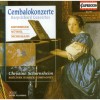Composers
Johann Gotffried Müthel
| Country: | Germany |
| Period: | Baroque, Classique |
Born: January 17, 1728 - Mölln, about 30 km south of Lübeck, Schleswig-Holstein, Germany
Died: July 14, 1788 - Bienenhof, near Riga, Latvia
Johann Gottfried Müthel was a German composer, organist and noted keyboard virtuoso. Along with Carl Philipp Emanuel Bach, he represented the Sturm und Drang style of composition.
Johann Gottfried Müthel was born in Mölln in the Duchy of Lauenburg, the fifth of nine children. His father was Christian Caspar, an organist at the Nikolaikirche and friend of Georg Philipp Telemann. He studied music with his father, and later Johann Paul Kunzen in Lübeck. In 1747, at age 19, he became a court organist and harpsichordist for Duke Christian Ludwig II of Mecklenburg-Schwerin, in Schwerin.
In 1750 J.G. Müthel was given leave to study with J.S. Bach in Leipzig. He became J.S. Bach's last pupil, beginning study only three months before the master's death. In that time, he notated a number of the blind composer's final works, including the Chromatic Fantasia (BWV 903) and parts of the Orgelbüchlein. According to J.S. Bach's biographer Philipp Spitta, he was present at J.S. Bach's deathbed, and took over his duties for nine weeks. Afterwards, he continued study with Johann Christoph Altnikol, who had also been living and studying with J.S. Bach. Afterwards he took the opportunity to travel and meet other composers, the most notable of whom was C.P.E. Bach (then residing at the court of Frederick II of Prussia at Potsdam), with whom he maintained a lifelong friendship and correspondence. In 1751 he returned to the ducal court, where he remained for two more years, eventually being replaced by his younger brother.
J.G. Müthel is believed to have been a skilled improviser on the keyboard. He seems to have preferred the clavichord. He gained praise from a number of musicians for his virtuosity. The English music historian Charles Burney, who mentioned him several times in his writings, held him in high esteem. The German Christian Friedrich Daniel Schubart wrote of his harpsichord skill that "connoisseurs that have heard him cannot praise enough the quickness, correctness and lightness with which he conquers mountains of difficulties."
In 1753 (Wikipedia) or 1755 (OCC) J.G. Müthel moved to Riga (now in Latvia, then part of the Russian Empire), where one of his brothers had moved. He remained in Riga for the rest of his life. It was here that he published his first works, in 1756; he only published a few works in his lifetime. At first he worked as a Kapellmeister to a small musical establishment (a private orchestra); later, he was appointed organist at St. Peter's Church, which he served from 1767 until 1788, when he died in nearby Bienenhof.
Johann Gottfried Müthel's works are predominantly instrumental. Some show J.S. Bach's influence, others are almost wilfully original in style. As far as is known, he was the first to use the term fortepiano in a published work, in the title of his Duetto für 2 Clavier, 2 Flügel, oder 2 Fortepiano (1771), which reflects the rising popularity of the fortepiano at that time.
Compositions
Most of his works remained unpublished in his lifetime, and some known works are still without official publication. None of the works for his principal instrument, the organ, were published in his lifetime, nor were any for non-keyboard instruments.
For keyboard:
His known works include a total of seven concerti, nine sonatas, and numerous other shorter pieces.
Concerto in B flat major (1767)
Concerto for Harpsichord in D minor (1767)
Sonata No. 1 in F major (1756)
Sonata No. 2 in G major (1756)
Sonata No. 3 in C major (1756)
Duetto für 2 Clavier, 2 Flügel, oder 2 Fortepiano (1771)
Duetto in E-flat major (1771)
Arioso with 12 Variations, No. 1 in G major (1756)
Arioso with 12 Variations, No. 2 in C minor (1756)
12 Variations for Clavichord
Minuet with 6 variations
Tempo di Minuetto con Variazioni
Fantasy in F for Organ
For voice:
45 Choice Odes and Songs from Various Poets (45 Auserlesene Oden und Lieder van verschiedenen Dichtern) (1759)
A cantata
For other instruments:
Concerto for Bassoon in C major
Concerto for 2 Bassoons in E-flat major
Sonata in D major for Flute and Basso Continuo
Recently Added
Biography
Born: January 17, 1728 - Mölln, about 30 km south of Lübeck, Schleswig-Holstein, Germany
Died: July 14, 1788 - Bienenhof, near Riga, Latvia
Johann Gottfried Müthel was a German composer, organist and noted keyboard virtuoso. Along with Carl Philipp Emanuel Bach, he represented the Sturm und Drang style of composition.
Johann Gottfried Müthel was born in Mölln in the Duchy of Lauenburg, the fifth of nine children. His father was Christian Caspar, an organist at the Nikolaikirche and friend of Georg Philipp Telemann. He studied music with his father, and later Johann Paul Kunzen in Lübeck. In 1747, at age 19, he became a court organist and harpsichordist for Duke Christian Ludwig II of Mecklenburg-Schwerin, in Schwerin.
In 1750 J.G. Müthel was given leave to study with J.S. Bach in Leipzig. He became J.S. Bach's last pupil, beginning study only three months before the master's death. In that time, he notated a number of the blind composer's final works, including the Chromatic Fantasia (BWV 903) and parts of the Orgelbüchlein. According to J.S. Bach's biographer Philipp Spitta, he was present at J.S. Bach's deathbed, and took over his duties for nine weeks. Afterwards, he continued study with Johann Christoph Altnikol, who had also been living and studying with J.S. Bach. Afterwards he took the opportunity to travel and meet other composers, the most notable of whom was C.P.E. Bach (then residing at the court of Frederick II of Prussia at Potsdam), with whom he maintained a lifelong friendship and correspondence. In 1751 he returned to the ducal court, where he remained for two more years, eventually being replaced by his younger brother.
J.G. Müthel is believed to have been a skilled improviser on the keyboard. He seems to have preferred the clavichord. He gained praise from a number of musicians for his virtuosity. The English music historian Charles Burney, who mentioned him several times in his writings, held him in high esteem. The German Christian Friedrich Daniel Schubart wrote of his harpsichord skill that "connoisseurs that have heard him cannot praise enough the quickness, correctness and lightness with which he conquers mountains of difficulties."
In 1753 (Wikipedia) or 1755 (OCC) J.G. Müthel moved to Riga (now in Latvia, then part of the Russian Empire), where one of his brothers had moved. He remained in Riga for the rest of his life. It was here that he published his first works, in 1756; he only published a few works in his lifetime. At first he worked as a Kapellmeister to a small musical establishment (a private orchestra); later, he was appointed organist at St. Peter's Church, which he served from 1767 until 1788, when he died in nearby Bienenhof.
Johann Gottfried Müthel's works are predominantly instrumental. Some show J.S. Bach's influence, others are almost wilfully original in style. As far as is known, he was the first to use the term fortepiano in a published work, in the title of his Duetto für 2 Clavier, 2 Flügel, oder 2 Fortepiano (1771), which reflects the rising popularity of the fortepiano at that time.
Compositions
Most of his works remained unpublished in his lifetime, and some known works are still without official publication. None of the works for his principal instrument, the organ, were published in his lifetime, nor were any for non-keyboard instruments.
For keyboard:
His known works include a total of seven concerti, nine sonatas, and numerous other shorter pieces.
Concerto in B flat major (1767)
Concerto for Harpsichord in D minor (1767)
Sonata No. 1 in F major (1756)
Sonata No. 2 in G major (1756)
Sonata No. 3 in C major (1756)
Duetto für 2 Clavier, 2 Flügel, oder 2 Fortepiano (1771)
Duetto in E-flat major (1771)
Arioso with 12 Variations, No. 1 in G major (1756)
Arioso with 12 Variations, No. 2 in C minor (1756)
12 Variations for Clavichord
Minuet with 6 variations
Tempo di Minuetto con Variazioni
Fantasy in F for Organ
For voice:
45 Choice Odes and Songs from Various Poets (45 Auserlesene Oden und Lieder van verschiedenen Dichtern) (1759)
A cantata
For other instruments:
Concerto for Bassoon in C major
Concerto for 2 Bassoons in E-flat major
Sonata in D major for Flute and Basso Continuo
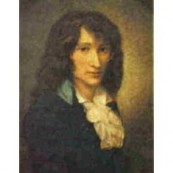
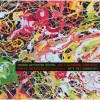
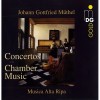
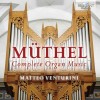
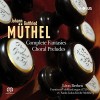
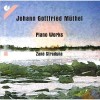
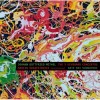


![Het Historische Orgel in Nederland [CD 15 of 20]](http://static.classicalm.com/repository/collection-cover/small/1009-img1343566837112912.jpg)
